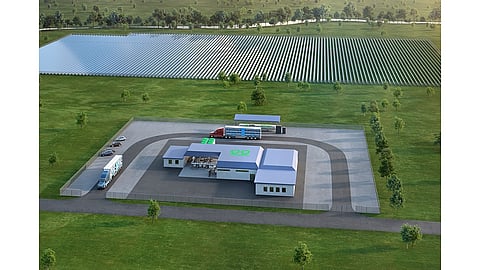

Edify Energy’s acquisition by CDPQ will advance the company’s 11 GW pipeline of hybrid and battery storage projects
The deal includes equity for 2 integrated solar and storage projects totaling 900 MW/3,600 MWh capacity
This acquisition aligns with CDPQ’s climate strategy to expand global low-carbon investments and reach net zero
Edify Energy, a leading Australian renewable energy and storage developer, has secured a major investment deal. Canadian pension fund La Caisse (previously CDPQ) has entered binding agreements to acquire the company for CAD 1 billion ($724 million).
Edify’s current operational capacity exceeds 1.1 GW across 11 projects in New South Wales (NSW), Queensland, and Victoria after working on what it calls the 1st utility-scale solar and battery storage project in Australia back in 2018.
The Canadian fund’s acquisition of Edify will support the latter’s significant pipeline of hybrid and battery energy storage system (BESS) projects of over 11 GW. It will also provide equity finance to 2 ready-to-build (RTB) integrated solar and BESS projects totaling 900 MW/3,600 MWh for offtake partners, namely mining group Rio Tinto and the Commonwealth of Australia (see Asia Pacific Solar PV News Snippets).
“With our long-term capital and sustainability expertise, Edify will accelerate the delivery of large-scale renewable and storage projects that strengthen the grid and advance decarbonization,” said La Caisse Executive Vice-President and Head of Infrastructure and Sustainability, Emmanuel Jaclot.
For La Caisse, which rechristened itself from CDPQ in June 2025, this deal follows its other big renewable energy acquisition this year, that of North America’s Innergex Renewable Energy for CAD 10 billion (see CDPQ To acquire Innergex Renewable Energy In CAD 10 Billion Deal).
The Edify Energy acquisition is aligned with La Caisse’s 2025-2030 climate strategy as it targets CAD 400 billion ($294 billion) in climate action investments by 2030, including in low-carbon technologies to achieve a carbon-neutral portfolio by 2050.
